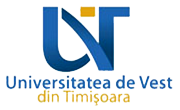Stefan Takacs
TU Chemnitz, Germany
Title: Can tools from symbolic computing help analyzing iterative solvers?
Abstract:
The construction of fast iterative solvers can be very challenging – even the construction of fast iterative solvers for linear problems. We are interested in linear problems that arise from Finite Element discretizations of partial differential equations. The linear problem can be written down in matrix-vector notation as $Ax=f$, where $f$ is a given vector and $A$ is a given large-scale but sparse matrix, whose condition number grows if the mesh used for the Finite Element discretization is refined (and thus the matrix dimension is increased).
One possibility to solve such linear systems, is to use a multigrid method. The term multigrid
method does not refer to one particular iterative solver, but to a whole class of iterative
solvers. A particular solver is obtained by adjusting the multigrid method to the problem of
interest.
Convergence theory might tell us how to adjust the multigrid method. There are two main directions how convergence theory can be developed: on the one hand there is classical convergence theory which is typically to be worked out by hand and yields non-sharp bounds on convergence rates in general cases, on the other hand there are approaches (like local Fourier analysis) that allow to compute sharp bounds on the convergence rates for special
cases in a rather straight forward way. Such approaches boil down the problem of showing the convergence of the iterative solver to a formal statement. Tools from symbolic computation (like cylindrical algebraic decomposition) can help to prove such statements or to reformulate them in a helpful way.
